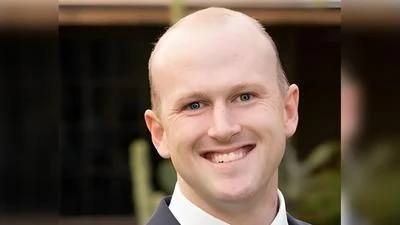I’m pained to write the words: Madeleine Albright—my friend and inspiration—is no longer with us.
Madeleine’s ascension—from refugee to brilliant student to foreign policy scholar to trusted White House aide to first woman Secretary of State—was astronomic. She broke the gravity that had so long held women from earning top foreign policy jobs, and stared down any man who tried to bully her, rattle her, or suggest she didn’t belong in the room—even when she was the only woman in the room. But she also was rare in admitting her vulnerabilities and sensitivities, making it possible for the generations who followed her to do the same.
Her tenure as Secretary of State wasn’t just historic, it was revolutionary. Rather than follow in the footsteps of the many quiet patricians who preceded her, Madeleine understood that a successful foreign policy required winning hearts and minds at home, not just abroad. She understood fully the need to translate the arcane protocol of global diplomacy into concepts any American could understand—to translate the pleas of Bosnians, Haitians, Kosovars, and others in dire need into appeals that would touch the American soul. And she grasped the power of eyewitness testimony to make meaning out of crimes that are too ghastly or overwhelming to countenance. After the massacre in Srebrenica of more than 8,000 Bosniak Muslim men and boys, she didn’t just present photo evidence of mass graves to the United Nations; she shared the firsthand testimony of a man who had survived the genocide by hiding among the dead.
Like all the world’s best diplomats, she knew when to speak out and when to deploy the power of silence and symbolism. In what became a defining trademark of her tenure, she wore brooches that matched her mood and spoke to the world, her jewelry serving as a masterclass in diplomatic messaging. When Slobodon Milsovic called her a “goat,” she didn't dignify his insult with words, she reclaimed it by adorning a pin she received as a gift from the Naval Academy of their mascot, Bill the Goat.
She also recognized the tremendous role American assistance could play in the world—that American foreign policy “should be shaped not only by what we are against, but also by what we are for.” To her this Agency’s work always represented America’s affirmative vision for the globe, and a chance to live up to our most cherished principles on the world stage. When I was nominated to become Administrator, she called me with at least a half-dozen ideas on policies and reforms she thought we should pursue, many of which are now in train.
Those of us working in foreign policy today—men and women—we’re all just following in Madeleine's footsteps. She showed us how it could be done. She showed us just how powerful a combination a sharp tongue and an even sharper mind could be. She demonstrated the moral steel necessary to stand up for our values. And she tirelessly mentored so many down the trail that she blazed.
I am shattered by the prospect of a world without her. But I remain inspired by the world she worked to build, one where all people live in dignity and in hope. I will continue to join USAID in fighting for that world—for many reasons, but also for Madeleine.
Original source can be found here.









